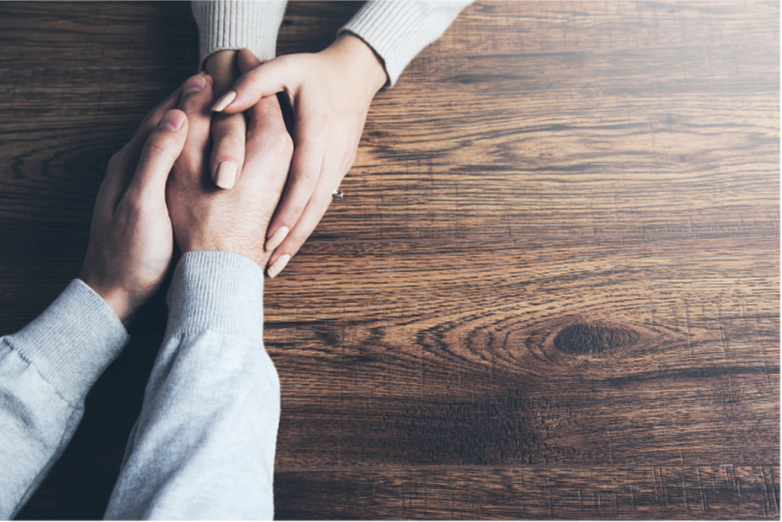What Is CDV and Why It Impacts Love
Valentine’s Day is a holiday intended to reaffirm our love for others and their love for us. But, for those of us who grow up experiencing adversity in childhood, such as Childhood Domestic Violence, love is often a difficult, confusing, and uncomfortable emotion – because there is often a powerful false belief behind it: that we are fundamentally UNLOVED, unlovable, and unworthy of love.
This is one of the common lies we learn when we grow up in a home with domestic violence, and more often than not, it tends to stay with us into adulthood. Many of us are so ill at ease with love that we may deliberately try to avoid it altogether.
If you grew up in one of these homes, even as an adult, you may still find it difficult to express your love for others or to receive their love, even with those you care about most.
Why Childhood Domestic Violence Causes Us to Struggle with Receiving Affection
Love is a vital condition that we need to thrive. According to Bruce Perry, Founder of the Child Trauma Academy in Houston and Professor of Psychiatry at Northwestern University, “Because humans are inescapably social beings, the worst catastrophes that can befall us inevitably involve relationship loss. You cannot love yourself unless you have been loved and are loved.” Growing up with childhood domestic violence complicates our loving relationships and our perceptions of love.
Difficulties Giving Love After Childhood Trauma
Recent research has demonstrated the crucial role of love in a newborn’s ability to develop and adapt to the world in a healthy manner. Feeling unloved early in life disrupts the formation of our sense of self. If we believe we were unloved by those who created us and were meant to love us unconditionally, we then struggle to imagine that anyone else could ever truly love us. As we grow into adulthood, maintaining this false belief can be a toxic agent that feeds on itself, resulting in a self-fulfilling prophecy and keeping love at bay, ultimately crippling our happiness.
Practical Ways to Relearn Connection
We can reclaim the love we may have never felt in childhood. The secret weapon embedded in the lie is that we can transform the hollowness of feeling unloved into the fulfillment of showing others the love we may never have felt as children.
How do we begin to unlearn the lie of being unloved and replace it with the truth of being loving? How do we begin to get comfortable with giving and accepting love from others? By making up for all the love we may have lacked as a child. And how do we do that? Try these 2 simple steps:
- Embrace and practice daily the other nine truths that replace the other nine lies you learned growing up with CDV. Letting go of your false sense of guilt, practicing empathy and putting yourself in the shoes of others, building your sense of compassion, giving thanks for the bounties in your life, trusting others’ good intentions, setting goals and chasing them relentlessly, focusing on the things that truly matter, remembering how much you’ve already overcome, taking necessary risks to achieve your goals, and seeing and celebrating yourself as others see you – all of these things can help you get closer to the LOVE you missed out on as a child.
- Share with others the rest of the truth that exposes the lies. By making others feel the way you want to feel deep inside – loved and cherished, free, compassionate, grateful, trusting, passionate, guided, accomplished, and attractive – you can begin to void the unloved Lie as well and diminish its power over your own life.
Roger “Rock” Lockridge, whose story is featured in Chapter 11 (Unloved TO Loving) of the New York Times Bestseller INVINCIBLE, knows this LIE all too well, and the path to discovering the TRUTH. Read his story and hear about his journey to overcome CDV in his candid and compelling video interview.
When you practice all the truths daily and share them with others, the inevitable response you will most often get from others will, in turn, help reinforce the sense that you are loved. Applaud someone’s efforts instead of being judgmental. Be courteous instead of impatient. Replace criticism with heartfelt compliments. By giving others the feelings they most covet, you will often see those feelings returned back to you. We receive love by giving it away, and we manifest love by taking actions that facilitate our ability to create it. When you give love to others, you will more often than not be loved in return.
When to Seek Support for CDV’s Emotional Impact
So if you find yourself struggling with giving or receiving love after the trauma of your childhood, you may want to seek support. The emotional impact often goes unnoticed for a long time, even decades. This is particularly true with CDV, the unknown ACE, where awareness is so limited. By reading this article and identifying the source of your issue with love you have taken the first step towards reversing that impact and turning it into a strength.

